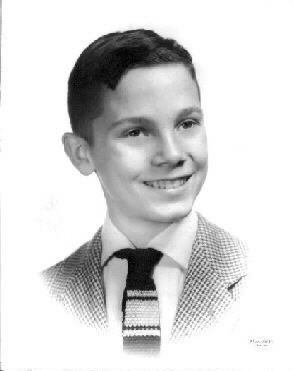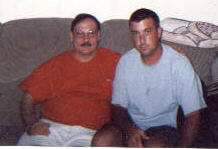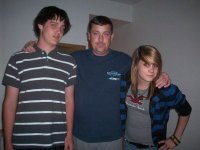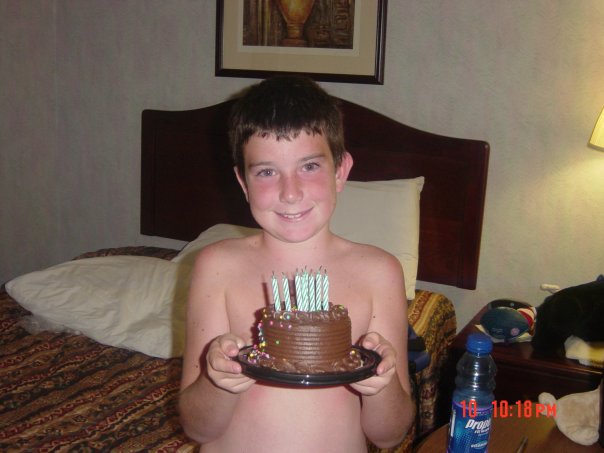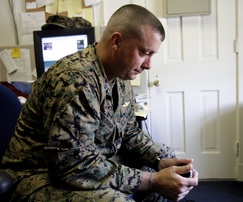RALEIGH, N.C. - Marine Gunnery Sgt. Bill Rosborough recalls with excruciating clarity when a water truck smashed into the building where he was preparing an Iraqi Army payroll.
Explosives hidden inside the truck vaporized the wall of his office in Al Kasik, vaulting him into the air. Shards of glass cut him, and building parts crushed him.
Back at Camp Lejeune three years later, many of Rosborough's visible wounds have been patched. But his brain still isn't right.
"I was able to do a million things before. Now I walk in the grocery store and I can't remember why I went," says Rosborough, 36, who works in the Wounded Warrior Barracks at Camp Lejeune, where injured Marines stay before returning to duty or leaving the service.
Faced with relentless bomb attacks on American forces, the military estimates in its latest survey that as many as one in five soldiers and Marines will suffer "mild" traumatic brain injuries in Iraq. Seventy percent are better by the time they return stateside but for others, symptoms persist.
As military and veterans' doctors confront what some call the signature wound of this war, they find more questions than answers about how to help. Diagnosing mild brain injuries is not simple. And the best treatments aren't yet clear.
"We're still trying to figure out exactly what this injury is, what exactly is the problem in the brain," says Col. Jonathan Jaffin, acting commander of the U.S. Army Medical Research and Materiel Command at Fort Detrick, in Frederick, Md.
Symptoms include short-term memory loss, faulty concentration, irritability, changed vision, and headaches, among others. And problems vary from person to person. On top of that, brain injuries can be mistaken for substance abuse or post-traumatic stress disorder.
Technology can't clarify matters. Mild brain injuries rarely get detected on MRIs and other imaging tools.
Veterans Administration mental health researchers are trying to sharpen the picture. At the W.G. Hefner Medical Center in Salisbury, N.C., doctors will make MRI scans of veterans who were and were not exposed to explosions, some with brain injury symptoms and others without. They hope patterns of differences will emerge.
They are collaborating with researchers at the Massachusetts Institute of Technology. Scientists there are using laboratory studies with brain tissue and computers to better predict how the force of an explosion affects various parts of the brain, particularly delicate axons. Those brain cell endings are needed for one cell to communicate with another.
What happens simply isn't clear, Jaffin says. It is known that explosions damage air-filled portions of the body, especially the lungs and areas inside the ear. But the precise effects on the soft tissue of the brain are a mystery.
"We know the explosions cause the problems. But whether it's the blast pressure or whether a vehicle gets flipped over and a guy gets flipped onto his head, it's hard to separate that out," Jaffin says.
Researchers are also trying to sort out differences between patients with brain injuries and those with post-traumatic stress disorder.
"They can look the same," says Robin Hurley, a neuropsychiatrist and acting chief of staff at the veterans medical center in Salisbury, N.C.
In Durham, psychiatrist Harold Kudler coordinates mental health research at VA hospitals in North Carolina, Virginia and West Virginia. He wants people suspected of suffering from mild brain injuries to have the best information available.
For reasons that are not clear, people with such injuries are more susceptible to alcohol - a few drinks can hit them harder than others, and drinking can slow healing. They also are more sensitive to pseudoephedrine, an ingredient in some cold medicines.
Kudler is asking the VA to distribute cards containing that warning and medical contact information to veterans who may have mild brain injures.
"The odds are that these people are going to heal. People can help them assess their problems. But there are some things they need to know," he says.
Scientists used to think the number of brain cells was finite. They now know that's not true. So soldiers with mild traumatic brain injuries may require therapy that doesn't merely adapt to a deficit but tries to heal it, Jaffin says, by stimulating new brain cell growth or strengthening other connections in the brain.
"We now find that new brain cells grow and new connections are always being made," Jaffin says. "The question is: Can we influence that and, if so, how?"
Two hours southeast of Raleigh, where Iraq veteran Rosborough works in the Wounded Warrior Barracks at Camp Lejeune, mild brain injuries are common. So are jokes built around memory, or lack of it. Many of the Marines carry palm-size electronic calendars to help them remember appointments.
But compensation tools may not be all that brain-injured people need. Rosborough knows firsthand that aids can't solve all the trouble his memory problems cause. He carries a Palm calendar to remind him of meetings and commitments. Still, after he invites his mother to spend time with his children off base, he sometimes forgets, then calls and invites her again.
The military must do all it can to help people like him heal, Rosborough says. He got immediate attention for the sizable slashes on his face and arm and for his crushed sinuses, but his most complicated injury went untended until recently. Only in the last few months have military doctors tried to assess exactly what is wrong with his mind, he says.
"Nobody looked at our heads."
Naval Hospital doctors at Camp Lejeune are ordering brain scans and other diagnostic tests for Rosborough and others. This spring they had him visit a neuropsychiatrist for the first time. The doctor conducted tests and told Rosborough that his mind probably will improve but that it could take more than a decade.
Military doctors say they are working on various fronts to step up treatment of brain injuries in Iraq and in the United States.
Sgt. Jack Durgala, 31, says these injuries must be a priority because the long-term repercussions can be profound. Durgala was injured in a 2005 blast as he and Iraqi soldiers were investigating a suspicious vehicle near a base in Hit.
They saw something dark in the middle of a road, and as Durgala lifted his M-16 rifle scope to study it from a distance, the improvised explosive device went off.
Both his legs were torn up. A piece of metal from the bomb dented his skull despite his helmet.
A resident of the Wounded Warrior barracks for now, Durgala wants to remain a leader in the Marines. He tries to help Rosborough and others in charge of the barracks keep the place clean and organized. He has organized a squad to help out. But if he leaves the room to do a chore such as fetch light bulbs, he'll forget why he left.
"The brain is a very complicated thing. Modern science is good at some things. A broken leg is simple to fix. They can't fix this," Durgala says, pointing to his forehead.
Now he's wondering what the long-term effect will be. Before Durgala was hurt, he managed a squad of Marines and had no trouble juggling multiple tasks. If his brain doesn't improve, he says, he's not certain he could make it even as a fast food worker.
"I don't have a solution to that problem," Durgala says. "No one really does."
Listen to audio of Gunnery Sgt. William Rosborough at http://go.philly.com/science

